Author: STCBlogAdmin
Selecting the Best Freight Forwarding Software in 2016
The freight forwarding industry must deliver quality services at narrow profit margins. A large part of this requires companies to choose the most cutting-edge and updated technology and software to ensure operations are as streamlined as possible. Click here to find out the 10 questions you should ask when selecting the best freight forwarding software for your business.
As Retailers Look to Add Value, 3PL Solutions Meet the Need

Smart retailers leverage numerous channels to provide the best possible experience for customers. It’s not a new idea anymore, and to meet the needs of today’s consumer, you need to understand where they live both online and in-person.
Research tells retailers what messages are needed for online shoppers versus brick-and-mortar guests, but at some point, the store needs to acquire the ability to deliver product where the customers live in their own little shopping worlds. So while your marketing spreads out to all the places where customer hangs out, the logistics function needs to be equally as agile.
The role of the 3PL in this diverse supply chain
More channels and delivery methods means a more complicated process that needs to be managed. This can lead to added costs and potentially expensive mistakes if the supply chain management is not reliable.
Strategically, the execution of the supply chain function is the heart of the retail business. If the business can’t deliver, it can’t collect the money on the product.
Make the investment! – If the heart of your business needs attention, don’t cut corners. You wouldn’t look for a do-it-yourself option for your own heart and you shouldn’t try to pull that off the heart of your business.
Who is there if something goes wrong? Considering all the responsibilities put on your staff already, time for fixing supplier issues just doesn’t exist. Enlisting the help of a resourceful 3PL partner can certainly lighten this load and put it back where it belongs — with the supplier. Many times the supplier and 3PL can anticipate an issue and make it disappear before anyone involved with the retail business is even aware. A vanishing issue is best kind of issue.
This illustrates a role the 3PL can assume and become a true partner of the business.
One eye on costs – Shipping and final delivery costs are anything but static and, for many retailers, the cost of shipping can even exceed the cost of the product being shipped. A well-established 3PL service can analyze into the future, anticipate a rise in shipping charges due to outside pressures and make decisions to mitigate the increase. They actually bring expertise in contract negotiation and management to your team.
At the very least, the 3PL provider can give some advanced warning in time to make a price adjustment or shift to another delivery method.
Complete services – The white glove 3PL can add as much service or as little as needed. When new stores open or capital improvements are being made , it’s well worth the cost to have a logistics provider deliver, set up and haul away waste from the shop so store managers and employees can move right to sales.
A wealth of service from a single provider is exactly what STC Logistics can bring to your business. If you’ve been considering adding a complete logistics and supply chain management service to your operations, take a look at our specialties today by clicking below!
What a Successful Retail Procurement Team Looks Like
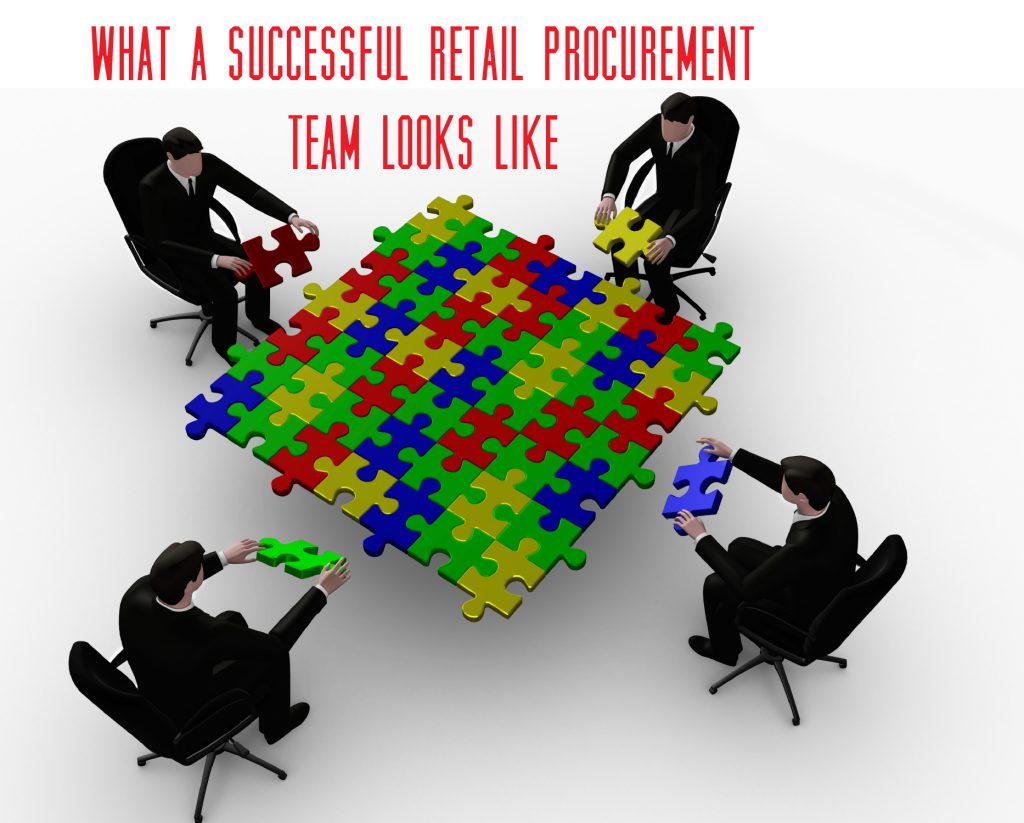
Continuously finding ways to improve and run a business more efficiently doesn’t apply only to those in manufacturing or logistics. Retail companies need to consistently look for more ways to innovate how they procure and work with suppliers, in addition to keeping stores full of the items customers want the most.
Optimizing expenditures, both direct and indirect, can help retailers reduce costs and improve services offered by suppliers.
The successful procurement team and their habits
- Support company strategy – The leadership team works to create a strategy that can be followed by everyone in the company, from the CEO to the newest employee. A great procurement team will use that strategy to drive decisions and support the organization. Pushing the strategy forward unifies the procurement team and the entire company.
- Implement continuous improvement strategies – No strategy is worth following if it doesn’t somehow emphasize continuous improvement. The procurement team should work toward improving the quality of products while reducing costs. It’s that simple.
- Ensure better service – Procurement teams can improve quality and cut costs, even if the products themselves continue to be more expensive, by negotiating for improvements in services offered by the supplier. As the cost of goods increases, prices for the consumer can be maintained if services such as shipment tracking work efficiently or if the goods consistently reach store shelves without damage. Often procurement teams can find room for improvement in last-mile deliveries. Suppliers help the retail company reduce costs and customers benefit from better prices.
- Test the market – As much as relationships matter, a great procurement won’t simply accept that their current supplier is the best for the business. Consistently researching vendors and making changes if necessary is crucial to an efficient procurement organization. A supplier that just didn’t fit a few years ago may be the best for the business today. Staying on top of development within the industry and supplier infrastructure enhancements can make a big difference. It’s up the procurement team to stay on top of changes with suppliers. We all know the business world moves fast and procurement teams need to be nimble and ready for change when an opportunity presents itself.
Keeping the customer first
Sitting in an office and constantly working to improve the bottom line can make it all too easy to forget what matters most to a retail business – the customer. Hopefully, the company strategy focuses everyone on the customer, but if not, it is essential for procurement teams to base decisions on how they will affect the end customer. If changing the way products are delivered to stores only helps the team working from the corporate office and not the folks working at the store, you could be damaging customer relationships or product availability.
A few pennies saved from the bottom line won’t matter if the change drives customers away. Great procurement teams can see the effect of changes all the way through the supply chain and into the store. The customer is still king – that much about business hasn’t changed.
Working with a 3PL Provider
Successful procurement teams work with logistics management providers who implement the latest technology and offer services that are a complete turnkey solution. The latest technology supplies your procurement department with the vital information needed when organizing build outs or remodels, whether for one store or hundreds.
STC Logistics will work directly with your procurement department or with your individual vendors. As a complete turnkey solution, in addition to our direct logistic management and supply chain management services, we also provide white glove service, sort & segregate fulfillment and installation services nationwide. To learn more about our 3PL retail logistics services and expedited shipping, click below!
Using Social Media to Boost Fragrance and Cosmetics Retail Sales
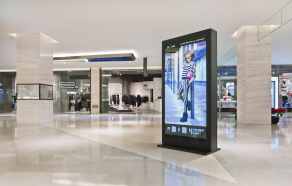
The cosmetics and fragrance industry enjoys success with a well-established foundation built over decades. As other well-established businesses struggle through the internet age, cosmetics and fragrances can take advantage of the opportunity to actually thrive. And they are thriving.
Cosmetics and fragrances typically enjoy high margins and low ship-to-weight ratios, making this a great industry for e-commerce and that’s the end of the funnel as companies work to pass customers through social media, right?
Retail fragrance and cosmetic companies are aware of the value of social media and must continue to evolve with the ever-changing platforms to keep ahead of competition.
Social media, research and decision making
Don’t think about research in the same boring way a scientist in a lab might approach the topic. Buyer research in the cosmetics industry (and many others) takes place in the form of simple conversations. The ability of a cosmetics or fragrance company to provide and respond to a channel can have a huge affect on sales.
Feedback forums and social platforms offer customers a place to go if something is not right or if they have a question. While this may not be directly transactional, customers who use responsive forums will feel more secure with their purchase knowing they can ask questions. This can play a critical role in shaping the transactions going forward.
Extending reach with product endorsements
Another age-old and successful strategy for the cosmetics industry involves the product endorsement. Long ago movie stars, singers and other beauties have endorsed makeup and fragrance to boost sales. This strategy continues to work well.
Social media only serves to amplify the product endorsement as now the company can leverage their own media channels in addition to the channels owned and updated by the superstar endorser. The online audience can quickly expand by millions with the addition of the right person.
Those imminently recognizable figures have also helped extend reach through video channels such as YouTube. Those classic television spots still matter, but again, successful companies such as L’Oreal see no reason to stop with traditional commercials when they can keep extending their reach and start a conversation with potential customers while they watch videos.
As annoying as it may be to some, there’s even the potential to gain the endorsement of the “social media celebrity.” Yep, we’re touting the value of the Kardashians and it makes sense. Celebrities with an excess of 16 million followers on their social media channels offer an attractive endorsement. Kendall Jenner and her famous sisters give big companies the chance to simply buy followers (and a lot of them) rather than jumping in and competing in the same crowded space. It could take years for a cosmetics brand to drum up that type of following.
Utilizing Paid Advertising Opportunties
Social media platforms such as Facebook and Twitter offer user-friendly paid advertising opportunities to businesses of all types—but these opportunities are especially effective for the retail world. Fragrance and cosmetics retailers can use paid ads to increase their following on social platforms, drive traffic to their websites, build buzz about a product or sale. These platforms allow you to run ads based on detailed demographic information to ensure the ads are reaching the right audience—and then gives you insight as to how ads are performing to continuously improve campaigns.
STC Logistics specializes in logistics services for retailers such as fragrance and cosmetics companies. To learn more about our retail logistics services, click below!
Expedited Freight and Shipping in the Pharmaceutical Industry: How 3PL Companies Contribute to Success
In the pharmaceutical industry, few factors matter more than a backing of solid, reliable, flexible logistics. Knowing that you can trust expedited freight to arrive in the hands of the manufacturers, medical professionals, and researchers is key to the business, yet many manufacturers settle for sub-par solutions—and suffering for it on their bottom line. Working with a 3PL company familiar with the myriad necessities of the pharmaceutical industry, capable of delivering expedited freight and shipping anywhere you need it to be, with all the appropriate precautions, isn’t just a good idea; it’s a game-changer.
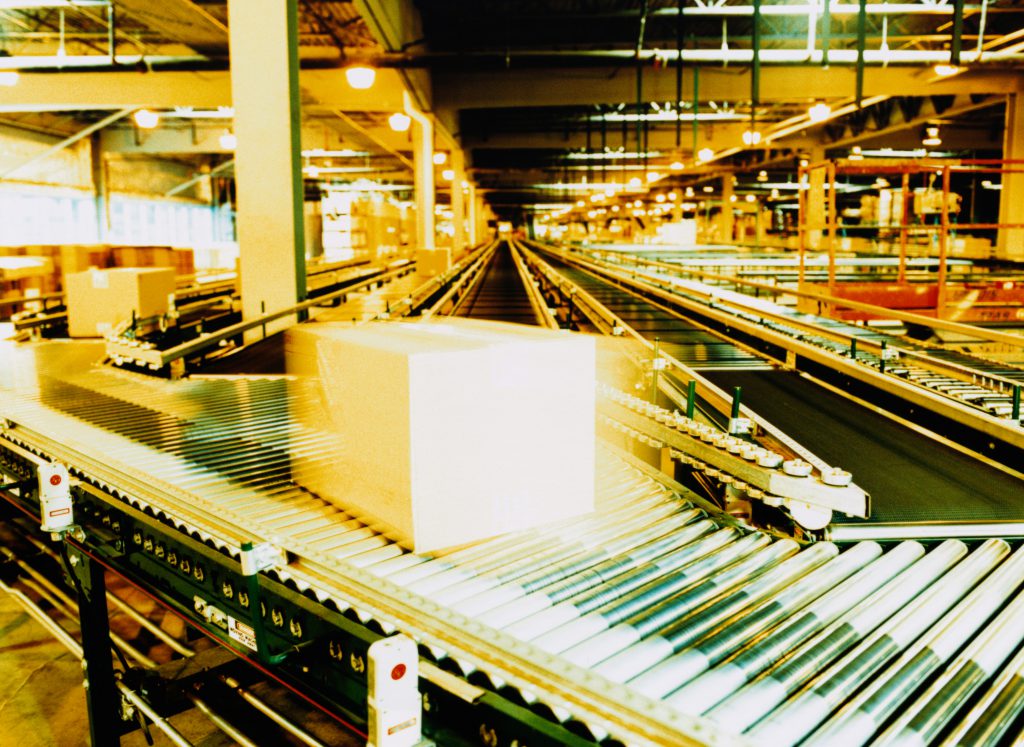
What 3PL Companies Bring to Logistics
To understand the advantages a pharmaceutical company might see in its logistics by working with a 3PL, consider the nature of such a company: Experts specializing in the singular task of getting things where they need to be, undistracted by other concerns except as they interfere with the issue at hand. Most companies simply cannot afford the upkeep of a dedicated staff focused entirely on this single issue, but by utilizing a 3PL, you get that expertise sans the associated capital costs of hiring, training, and maintaining such a team with the latest in tools and software.
Expedited Freight without Error
By working with a 3PL to handle expedited freight, a pharmaceutical business gains the benefits of speed without error—the practiced familiarity of a specialist in logistics cannot be underestimated as a benefit for this reason alone. A familiarity with regulations, regional laws, changes in shipping expectations, and myriad other details which might slip by a non-specialist logistics officer will be caught and compensated for by a company specializing solely in offering top-notch freight and shipping options. It doesn’t matter, after all, how quickly you’re expedited freight should reach its destination, if a mistake makes it arrive much later.
Flexibility and Increased Security
A 3PL inherently offers flexibility in all forms of expedited freight and day-to-day shipping solutions, because such a company needs to be equipped and ready to meet the needs of very different client corporations. This means that unlike an in-house logistics team, a 3PL never runs into unfamiliar situations, needs to rush to arrange something they’ve never worked on before, or finds itself caught up by issues of scalability and general flexibility. When pharmaceutical reps receive goods, clients can have peace of mind with scheduled appointment times and restricted signatures. By working with a 3PL, pharmaceutical businesses can confidently adjust to the market and know they have a reliable logistics solution ready to keep up.
Meeting Special Situations
Ultimately, the biggest trap in pharmaceutical industry logistics lay in unusual situations, unanticipated by anyone. The regulations at hand, the expectations of customers and business partners, the limitations of even the most expedited freight system, these come together to produce scenarios with no clear ‘win’ in sight. By working with a 3PL, however, you gain access to the single trait most valuable in resolving unusual circumstances: experience. The varied logistical experience of a 3PL’s staff, combined with the myriad tools and data such a company keeps at hand, mean you’re far more likely to develop workable solutions to the messiest expedited freight situations when you engage the services of one.
Final Thoughts
Ultimately, it falls to each individual company to determine the benefits it might see from working with a 3PL—if you’re confident in your in-house solutions and rarely encounter problems, you may consider the expenditure unnecessary. Just keep in mind that even well-established systems can be streamlined and perfected with the assistance of an extra set of eyes and the application of specialized tools—and when you perfect your logistics, streamlining expedited freight and cutting wasteful spending in the process, you’re certain to see an improvement on the bottom line.
STC Logistics specializes in expedited freight logistics solutions, including ground shipping, for the pharmaceutical industry. We are one of the top trusted pharmaceutical logistics companies in NJ. To learn more about our pharmaceutical logistics, click below!
How to Avoid Last-Minute Retail Logistics Mishaps
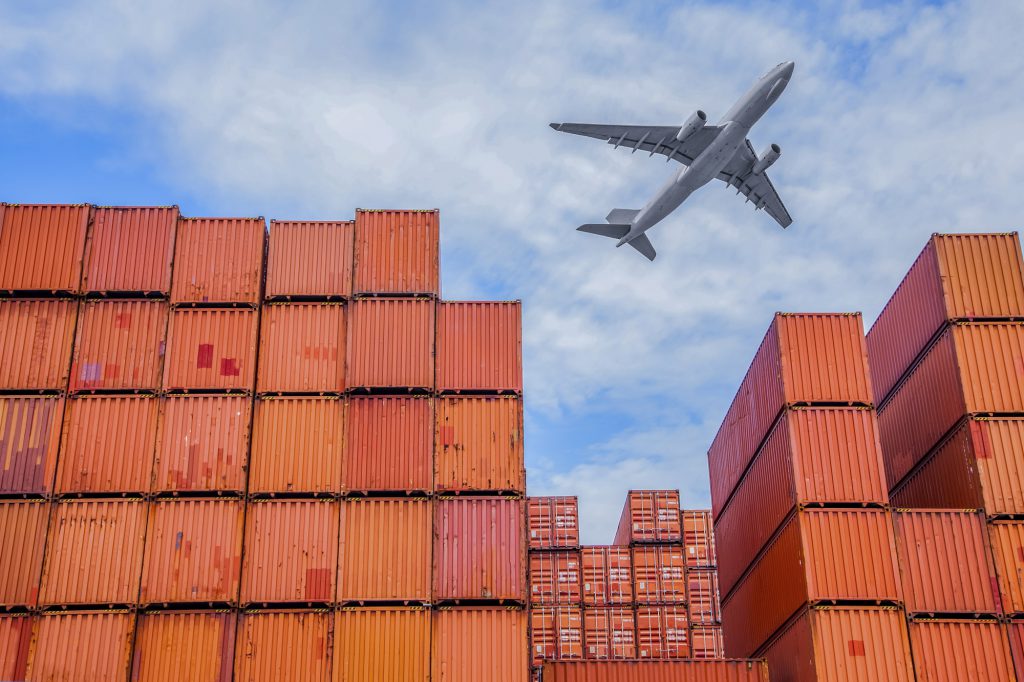
A misstep with your retail logistics can cause dramatic profit losses even when you see it coming from a mile away–when you’re blindsided by last-minute mishap, those losses become nearly inevitable. With that hard fact in mind, it behooves a retailer content to protect its profitability by working out flexible, reliable, trustworthy logistics solutions. For most businesses, there’s one simple way to manage this: the services of a reputable Third-Party Logistics (3PL) provider. Wondering how a 3PL can empower retail logistics, improve bottom lines, and insulate companies from last-minute mishaps? Read on.
What a 3PL Offers
At its core, what a 3PL offers is the experience and efficacy of an advanced in-house logistics team without the associated costs of hiring, training, outfitting, and maintaining such a team full time. By leveraging that level of experience and familiarity with retail logistics on a part-time basis, you can achieve much greater efficiency in every aspect of your supply chain—which means big savings and big profits, in the long term.
And unlike an in-house team, a 3PL has zero issues with scalability, myriad tools which may only see use in unusual circumstances, and many other advantages of adaptability which a savvy retailer can leverage to their benefit. Few retail logistics solutions offer as much.
Avoiding Retail Logistics Mishaps
By working together with a 3PL to develop flexible retail logistics strategies, you can minimize or even eliminate the opportunity for most mishaps to arise. When regulations change, or a particular shipping route becomes less effective and thus less profitable, a 3PL will be far more likely to spot that change and adapt accordingly—saving you from wasteful shipping, delays, and other retail logistics nightmares.
But even the greatest plan and greatest analysis can’t offer 100% coverage from all mistakes and unexpected occurrences. That’s where the other great strength of a 3PL comes to the rescue: the nature of a 3PL means a much greater agility in developing workaround solutions and last-minute logistical fixes than anything an in-house retail logistics team working with mainstream shipping services could provide.
Turn Logistical Traps into Opportunities
The savviest businesses will take their logistics one step further than safe, by turning the same events which become mishaps for their competitors into opportunities. By being the first business in your market to adapt to changing logistical situations, and thus maintaining lower prices or better offers than those competitors which took the shift’s full brunt, you can turn yesterday’s pitfalls into today’s grand opportunities. All it takes is flexibility and a willingness to act quickly to capitalize on such chances.
Final Thoughts
If you take the reliability of your logistics at all seriously, investing in the services of a 3PL provider may be the best option for your business—a cost-effective way to maximize the efficiency of your supply chains, avoid mishaps as they arise, and adapt to changes in the way you receive your retail goods. STC Logistics has several years of experience working in the retail procurement industry, providing reliable logistics solutions for new store openings, POP display campaigns, rollouts and distributions, and much more. Click below to learn more about our retail logistics services!
Common Retail Industry Warehousing Issues and How to Solve Them
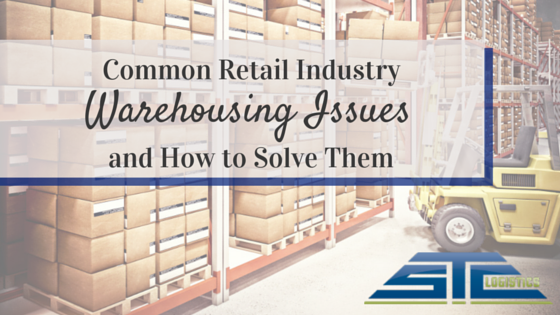
Warehouses are commonly used by retail businesses to store items that have been shipped to them but have not yet been moved into stores. In addition to retailers, transport businesses, manufacturers, customs, importers and exporters use warehouses as well. They may be designed to house goods of a certain type; perishable goods, for instance, are stored in refrigerated warehouses. They may be used to assemble containers for export or prepare consolidated shipments for distributions.
Despite the tremendous value warehouses provide for companies, some issues cannot be avoided altogether. In this article, we will look at some of the most pressing retail warehousing issues and how they may be solved, avoided or minimized.
Top Retail Warehousing Issues
1) Not having enough space
The amount of storage space needed for a company depends on the size and quantity of goods to be stored and length of time which storage is required. Companies aim to rent or purchase warehouses that have enough space to meet their needs, but sometimes end up ordering more merchandise than their space can accommodate or under estimating the length of time necessary. More often, the issue of space occurs as a consequence of inadequate organizational practices, such as not making efficient use of the available space or experiencing delays in implementation of goods at final destinations. Such poor organization leads to time and money being wasted on unnecessary labor and square footage.
To ensure adequate warehouse organization, a company should contract with warehouses and 3pl companies that understand the parameters of retail warehousing requirements. This way, less time will be spent locating items and in turn expedite the actual shipping process, such as using expedited logistics services. The machines used in loading and unloading should also be taken into consideration since they, too, are typically stored on-site. Counter balance machines are not very good for retail warehousing and should be rejected in favor of narrow aisle reach trucks and multi-directional forklifts, which can increase storage space by thirty and forty percent respectively.
Another important element of space management in retail warehousing is to have the place thoroughly evaluated by a professional forklift business. This can further maximize storage space. It is essential to have a facility that understands retail needs and can provide flexibility.
2) Slotting
When looking for slots to store items that have just arrived, forklift trucks often make one trip after another while scouring for space around the warehouse, wasting gas or electricity. As a result, they often end up putting their loads into the first empty slot across which they come, again resulting in disorganization. The last thing that any retail business needs or wants is disorder; they need to know exactly where something is so their customers will not have to wait for inventories to be replenished or for new products to launch.
There are numerous types of storage racks, and good retail warehouse practices involve knowing what they are and the purposes for which they may be used; these include:
- cantilever
- double deep
- drive-in
- powered mobile
Companies can also plan the use of slots, taking into account special needs for certain items as well as supply needs.
3) Discrepancies in inventory, not picking fast enough
Another common warehousing problem occurs when too much time is spent on each item because of poor management practices. When scanned mechanically, barcodes can reduce handling time for merchandise, providing order and ease of access. For larger items and fixture or displays, pallets can be color coded in order to group together specific store configurations or marketing campaigns, thus allowing design teams to have easy access.
In conclusion, retail freight logistics and retail warehousing depends, more than anything else, on organization. With everything in its proper place and employing proper accounting and moving machines, retail warehousing can be vastly simplified, to everyone’s great satisfaction.
STC Logistics specializes in nationwide retail logistics solutions and warehousing services. We ensure not only that your items arrive on time and undamaged with our expedited logistics services, but are stored safely and scheduled with cost-efficiency and reliability. To learn more about our retail freight logistics solutions, click below.
Up and Coming Retail Logistics Trends for 2015
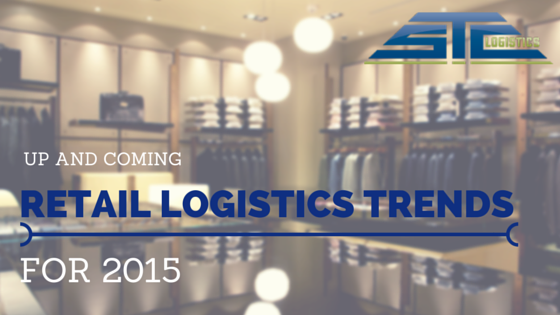
Up and coming retail logistics trends show a global shift in the movement of goods and services. Developing countries are now challenging countries that were once recognized as leading the world in consumers spending and consumption. Here are retail trends that are expected for the remainder of the 2015:
1) Heavier Competition
Developing markets offer goods and services for developing lands. Goods are in demand by countries once unable to afford durable goods. Manufacturers are courting consumers of these nations and their newfound wealth. Consumers are offered different avenues for shopping, placing pressure on sellers to work harder to draw and hold present customer base. This requires consistent improvement of retail logistic strategy and solutions.
2) Increase in Supply Lines
Retailers and manufacturers are using multiple currency applications and better merchandise supply lines. Supplying a reliable product the first time around is more important than ever. Merchandise reaches customers in a few days rather than weeks. Sellers competing with businesses with local distribution networks must search for benefits that set them apart and give a buyer a motive to wait extra time for merchandise. Companies refusing to recognize the way money is moved from one global point to another cannot operate effectively. It is more important than ever to have a reliable logistics backing in todays “instant gratification” culture.
3) Increase in Online Purchasing
The internet launched a major change in retail logistics. Those realizing the advantage quickly took primary spots in front of the consumer, such as Overstock and Zappos. The introduction of internet purchasing changed retail logistics even further. Businesses operated by one person or small groups are now able to advertise and sell to global markets, ship merchandise and cut into a percentage of the GDP. Globalization is a possibility for anyone.
Internet shopping is increasingly done more on mobile devices. The most recent trend is new source in mobile technology: shopping apps. Customers can download shopping apps on phones and checkout with any number of payment options. Prosperous businesses have fallen along the wayside if they haven’t yet adopted this technology. More than 50% of online shopping is currently done through mobile apps. Future expectations expect the present 4 billion shopping app dollars to expand to a fast 200 billion. Presently, 78% of people searching with a mobile app make a purchase.
4) Cheaper Costs for Major Transportation
Companies around the world now have access to major transportation outlets. The ability of companies to ship small and large loads economically from every part of the globe allows any merchant to transport goods. Merchandise is constructed, stored, packaged and shipped in a refined operation—specifically when outsourcing logistics needs to a third-party logistics (3PL) provider. Logistics providers offer retailers and customers peace of mind by providing currency alternatives, inventory management and product tracking. When it comes to retail logistics practices, this is a selling mechanism. A reliable 3PL can provide customers payment arrangements that suit their bookkeeping methods that ultimately aid in sales.
In large business operations from developed nations, owners may know how long merchandise will take to get to a destination as well as transportation cost and has a strong network of carriers and 3PL’s to manage products. The use of a 3PL provides manufacturers from less well-known destinations the opportunity to compete in an economy once dominated by larger countries and allows larger businesses to maintain control.
5) Information Flow Integration
Access to information allows buyers to reach into a new pool of prices. Older manufacturers may be able to present a lower price of quality merchandise but others may sacrifice profit to break into the market. A smaller company may have less overhead enabling it to compete with mainstream producers. Knowledge of the market that consumers work and buy merchandise in is essential. Reliable export and packaging information can be easier to find. This added step helps trust in dealing with a provider of merchandise and is an asset in retail logistics operations.
Material handling, production, packaging, inventory, warehousing and security are all important aspects of retail logistics. If a retailer’s freight is not distributed and delivered with accuracy and safety, they risk the cost of operation and profit. Retailers can rest assured that they are maximizing productivity and profit when employing a third party logistics (3PL) provider. STC Logistics specializes in reliable retail logistics, export assembly services and import distribution solutions that can ensure an efficient supply chain. Whether coming from multiple vendors or going to various destinations, from inventory, warehousing and delivery requirements, STC Logistics warrants product to its final endpoint. Click below to learn more about our fast freight retail shipping services!
To receive updates for our logistics blog, subscribe at the top of the page!
Expedited Logistics: Four Benefits of Working with a 3PL Provider
Expedited logistics are required for many reasons—especially with retail logistics and pharmaceutical logistics—primarily for ensuring that a product launch is made on time, that products are available at a manufacturing site or that a time-sensitive shipment gets to a customer quickly and undamaged. Expedited logistics have played a major role in the economy and throughout the supply chain process to meet time-sensitive deadlines while still upholding the quality that the client requires. These fast freight shipping services are typically carried out through air freight preferences – although, a savvy 3PL provider may be able to provide ground and ocean options, depending on the transit times, weather forecasts and other factors.
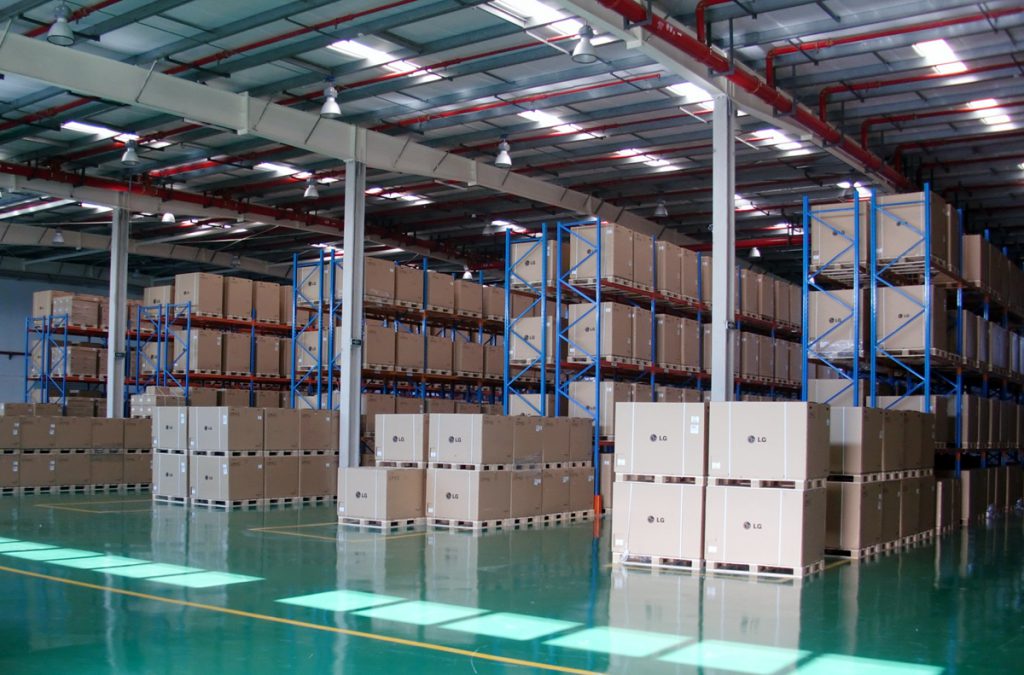
Determining the Best Schedule
When a business decides to work with a 3PL for expedited logistics, they’re able to attend to their own schedule without being hindered by an extremely regimented shipping routine. The 3PL can determine the most direct shipping schedule for reliable logistics, leaving the business to only worry about their customers’ needs.
Additionally, customers often appreciate being given several options for freight shipping, such as same day, next day, weekend and 3-5 day services. Small businesses can gain more favor with their clients if they are able to meet last-minute deadlines which expedited logistics allow them to.
Customer Choice & Satisfaction
One of the main reasons 3PL offersexpedited logistics is that it gives the customer a choice. If they are missing critical fixtures from a time-sensitive campaign or have received the wrong equipment, they can have peace of mind that an expedited service will help them resolve the issue. While this service is available for an increased cost, the benefits far outweigh any risks. Using a 3PL for expedited logistics gives a business the ability to make an informed choice for their most demanding needs.
Another equally important reason to have expedited logistics is customer satisfaction. When a customer is in jeopardy of missing a launch or needs help, demonstrating the flexibility of providing on-time delivery allows a 3PL to prove as a dependable freightshipping source in the eyes of the client.
Improved Processing Time
When placing an order, part of the time spent waiting for the shipment is processing time. This is the time it takes to pick the product from the warehouse, load it onto a method of transportation and actually ship it out. Expedited logistics minimize the amount of processing time therefore decreasing delivery time to the consumer. This leads to a satisfied and potentially repeat customer. Client retention and loyal relationships is crucial to having a successful 3PL connection.
Experienced Service
By using a 3PL for expedited logistics, a business can rest easy knowing that they trust their freight with a company that providesreliablelogistics in all shapes, sizes, time zones and time frames. 3PL are well equipped to handle any shipping issue that might arise, whereas a hiccup in a small business’ shipping plans could very well cripple sales.
Expedited logistics has considerably improved with technology. From improved shipment visibility to the more accurate tracking of information, to quicker speeds, expedited shipping services are assisting the largest and smallest customers by ensuring deliveries are on-time and with the utmost standards of quality.As technology continues to improve, expedited logistics will become even more critical to the success of an organization, and utilizing a 3PL to accomplish these needs will reduce risk.
STC Logistics is one of the most trusted logistics companies in NJ and offers expedited logistics that are especially important for retail and pharmaceutical industries. To learn more about our shipping options, click below!
Global Logistics: Benefits of Working with an International 3PL Provider
For successful companies, the primary differentiator from competitors may be the efficiency of their supply chain. An uninterrupted supply chain adds value to the company because it determines the pace at which other operations can press ahead. A bottleneck in the supply chain can have an adverse impact on the company’s brand, revenues, customer satisfaction, and profitability.
 More small, mid-size and enterprise level companies are realizing the numerous benefits by outsourcing supply chain management and logistics to a 3PL provider. A 3PL partner has the logistics advantages, including expertise, technology and network connections, to ensure that the warehousing and transportation component of the operations moves in the right direction.
More small, mid-size and enterprise level companies are realizing the numerous benefits by outsourcing supply chain management and logistics to a 3PL provider. A 3PL partner has the logistics advantages, including expertise, technology and network connections, to ensure that the warehousing and transportation component of the operations moves in the right direction.
A 3PL provides businesses with reliable logistics solutions that include the following benefits:
Wide Network of Resources
By working with a 3PL provider, a business can take advantage of a vast network of resources and carriers. This enables providers to execute each step along the supply chain efficiently and cost-effectively through leveraging assets, relationships and industry knowledge and experience. It results in lower overhead and quick service delivery because of the international 3PL provider availability of resources that in-house operations cannot match.
Save Time and Money
More businesses find that they can save both time and money by outsourcing their logistics to third-party logistics providers. Generally, these companies provide warehousing, transportation (ground, air, rail and sea), proprietary technology and integrated operation services.
Business owners and executives can tailor the 3PL provider services to meet market demands and customer needs. The right logistics service provider has a global network in place to handle paperwork, customs documentation, billing, audits and staffing necessary to efficiently move goods where they need to go for the lowest cost.
Industry Expertise and Experience
3PLs should have knowledge of industry best practices when it comes to packaging, transporting and storing goods in an organized and cost-effective manner. Service providers stay up-to-date with the latest advances in technology, manufacturing and logistics. They have state-of-the-art applications, supply chain transparency, transportation management and inventory control.
Scalability and Flexibility
Three key benefits to outsourcing logistics has to do with the flexibility to scale space, transportation and labor, especially if you experience a sudden spike in demand. Firms that have seasonal variations in their business can plan their budgets accordingly and adjust inventory, space and other resources up or down when needed. Businesses looking to grow and expand into other markets have in place the logistic infrastructure to support their strategic initiatives with incurring increase in costs.
Best Practices and Optimization
Cloud computing, proprietary systems and other technology platforms make it easier to outsource logistics. Smart, transformed companies understand the value that a reliable, accurate and timely supply chain has on the business. Reliable third-party logistics companies have proven cost-effective systems geared to move a large volume of goods and ensure that they get to the location on time.
Economy of scale allows 3PLs to build a network and provide the resources businesses need to be flexible and scalable and ensure important needs are met. Third-party logistics providers have the latest technology, industry knowledge and systems to make sure that customer shipments arrive in top condition, at the right place, at the right quantity, and in the right time frame.
The third-party logistics firm should provide the customer with transparency, access and the ability to track everything the client needs to know through an interface, data warehousing, advanced reporting and customer-facing web portals.
Companies of all sizes can benefit from working with a 3PL provider. Choose a 3PL provider that has the system, financial capabilities and expertise to deliver the requisite services to make operations more effective and efficient.
STC Logistics offers international and domestic freight services. To learn more about our shipping options, click below!















